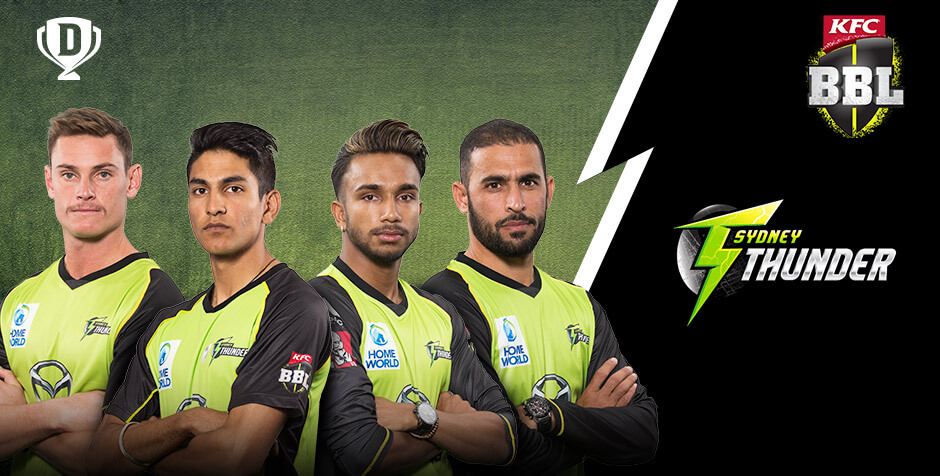Purposeful Lancashire opening batsman Mike Atherton captained England during a turbulent era, defying intense media scrutiny by leaning on the powers of disciplined focus honed during 12,662 gritty runs spanning 115 Tests until 2001.
Atherton battled valiantly against Donald and McGrath, earning public loyalty through sheer intransigence at the crease, though tactical limitations emerged on away tours.
Off the field, improper media allegations bonded the Cambridge graduate closer with England’s battered remnants during a difficult decade.
Article Highlights
Hide- Mike Atherton had a strong educational background and cricketing environment which shaped his early skills in the sport.
- He was known for his technical acumen and composure at the crease, making him a reliable player who could occupy the crease for extended periods.
- Atherton's captaincy of the England cricket team from 1993 to 1998 was the longest and most challenging in English cricket history, and he revitalized a team undergoing generational transitions.
- He has made significant contributions to cricket journalism and broadcasting, offering incisive analysis and insight to fans and professionals alike.
Post-playing, his transition from captaincy to the commentary box proved seamless as his understated style won admirers without compromising integrity or insight.
Esteemed cricket correspondence followed, affirming Atherton’s reputation as an erudite strategist, able to dissect Gooch’s batting methodologies as astutely as he handles television technology.
Early Life and Education
Born on March 23, 1968, in Failsworth, Lancashire, England, Mike Atherton’s early life laid the quintessential foundation for his future endeavors in cricket.
He received his education at Cambridge University, where he excelled both academically and athletically. His formative years were marked by an immersive engagement with the sport, which was fostered by a robust cricketing environment at Manchester Grammar School.
This institution has a long-standing tradition of cultivating cricketing prowess, which undoubtedly honed Atherton’s early skills and solidified his passion for the game.
Kevin Pietersen
Gifted South African émigré Kevin Pietersen galvanized English cricket in 2005 by blazing ... Read More
Upon securing a place at Cambridge University, Atherton’s cricketing career burgeoned alongside his academic pursuits. His tenure at Cambridge was punctilious, reflecting a fusion of rigorous scholarship and athletic discipline.
Atherton distinguished himself in the University cricket team, where his performance was not merely proficient but revelatory, earning him the captaincy. It was here that his leadership qualities and tenacious playing style began to crystallize.
The analytical scrutiny of Atherton’s early education reveals a duality of intellectual and physical development that is characteristic of cricketing legends.
This balanced approach laid the groundwork for a cricketer whose strategic acumen on the field was underpinned by a strong educational background, a synthesis that would later become the hallmark of his professional career.
Mike Atherton: Cricketing Beginnings
Mike Atherton’s foray into professional cricket commenced with Lancashire County Cricket Club. His prowess as a top-order batsman and astute strategist quickly became apparent.
His technical acumen and composure at the crease were indicative of a player destined for higher honors. Atherton’s ability to anchor the innings and his penchant for occupying the crease for extended periods fostered a sense of reliability that would become a hallmark of his career.
Emerging through the ranks, Atherton’s cricketing pedigree was honed in the competitive milieu of County Cricket. He displayed a maturity beyond his years.
His statistical contributions during these formative years were marked by a steady escalation, underpinning his potential to excel at the international level.
His selection for higher echelons was a testament to his consistent performances. This was underscored by a robust technique and an analytical mind that dissected bowling attacks with surgical precision.
In this nascent stage, Atherton’s inclination towards leadership was discernible. He exhibited a cerebral approach to the game, combining his technical proficiency with mental fortitude.
This synthesis would later define his tenure as captain. The foundation laid during these initial years was instrumental in his ascent to the zenith of English cricket.
Captaincy and Leadership
Ascending to the role of England’s captain in 1993, Atherton’s leadership qualities were put to the test in the crucible of international cricket.
His tenure as captain, which spanned 54 Test matches until his resignation in 1998, remains one of the longest and most challenging in English cricket history.
Atherton’s captaincy was characterized by his stoic demeanor and cerebral approach to the game. He faced the arduous task of revitalizing a team that had been plagued by poor performances and was undergoing generational transitions.
Atherton’s leadership was scrutinized through a period marked by intense competition and the resurgence of strong cricketing nations.
Despite the uphill battles, his analytical acumen was evident in the strategic decisions made on the field, often underpinned by a deep understanding of the nuances of the game.
His ability to absorb pressure and his unwavering focus on the game’s fundamentals served as a template for captains who followed.
Statistically, Atherton’s captaincy record does not reflect his impact on the team’s ethos. The numbers—a win percentage of 31.48 in Tests—mask the intangible qualities he brought to the captaincy: resilience, tactical intelligence, and an unflappable spirit in the face of adversity. These attributes cemented his legacy as a leader who steered English cricket through a transformative era.
Mike Atherton: Notable Performances
Beyond his commendable leadership, Atherton’s career featured numerous individual performances that underscored his prowess as one of England’s most tenacious batsmen.
His ability to occupy the crease for extensive periods and to anchor the innings under pressure was a hallmark of his playing style. Atherton’s technique, especially against spin, received plaudits, and his mental fortitude was often the linchpin in England’s resistance against formidable bowling attacks.
To illustrate his impact and skill, consider these exemplary performances:
- 185 Not Out vs. South Africa, Johannesburg, 1995: A marathon innings that spanned over 10 hours, displaying Atherton’s incredible concentration and resilience against a potent South African attack.
- 123 vs. Australia, Lord’s, 1993: A gritty century that showcased Atherton’s proficiency in countering the vicious swing and seam on a challenging Lord’s wicket.
- 98 vs. West Indies, Bridgetown, 1994: A valiant effort just shy of a century, against one of the most fearsome pace attacks of the time.
- 167 vs. Australia, Headingley, 1997: A dominant display of batting, combining deft stroke play with an unyielding defense.
- 118 vs. West Indies, The Oval, 2000: A masterclass in batting under overcast conditions, reinforcing his reputation for excelling against high-caliber pace bowling.
Each innings, rich in context and significance, demonstrates Atherton’s analytical approach to batting and his unwavering dedication to the England cricket team.
Post-Cricket Endeavors
Transitioning seamlessly from the cricket field to the media landscape, Michael Atherton has established himself as a distinguished cricket commentator and journalist.
His post-cricket career is characterized by a keen analytical mind and an ability to convey the nuances of the sport with clarity and depth.
Atherton’s contributions to the field of cricket journalism have been lauded for their incisive analysis and comprehensive coverage of the game’s evolving dynamics.
His written work, often featured in The Times, displays a mastery over language and an understanding of cricket’s intricacies that few can parallel.
As a commentator for Sky Sports, Atherton brings to the table a blend of experience and insight, which has significantly elevated the quality of cricket broadcasting.
Below is a table summarizing Atherton’s key contributions to cricket media:
| Media Role | Significance |
|---|---|
| Cricket Commentator | Elevates broadcast quality with expert analysis. |
| Cricket Journalist | Provides in-depth, articulate coverage of cricket affairs. |
| Author | Has authored several books, adding literary depth to cricket commentary and analysis. |
Atherton’s post-cricket endeavors have not only perpetuated his legacy but have also enriched the cricketing discourse, offering fans and professionals alike a lens through which the sport can be appreciated in all its complexity.
Summary
In conclusion, Mike Atherton’s trajectory in the world of cricket, from his early life and education to his ascent as a notable captain, has secured his place in the annals of the sport.
His leadership on the field and significant performances have left an indelible mark on the game.
Atherton’s post-cricket endeavors further highlight his versatility and commitment to cricket beyond the boundary ropes, cementing his legacy as a revered figure in the cricketing fraternity.

















